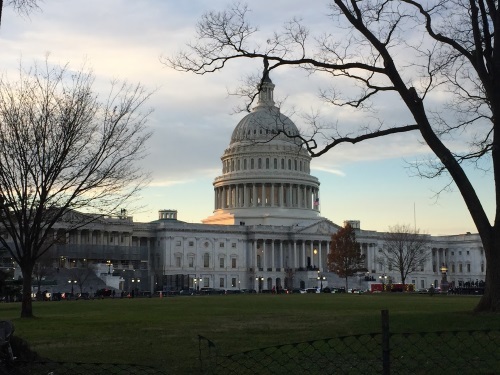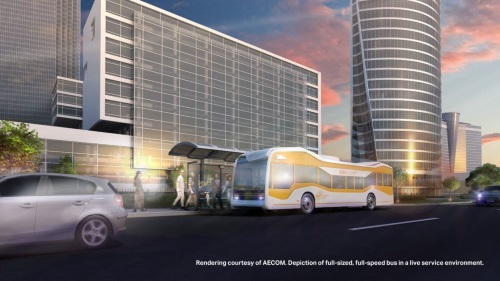A collection of 10 U.S. transit and transportation agencies – including divisions of the Michigan Department of Transportation, Minnesota Department of Transportation, and Virginia Department of Transportation – helped form the Automated Bus Consortium on May 30 to “investigate the feasibility” of implementing pilot automated bus projects across the country.
[Above graphic from AECOM.]
Led by AECOM, an infrastructure consulting firm, the consortium’s members plan to define potential deployment routes and locations, operating plans, automated bus specifications, and financial needs for pilot projects lasting up to 12 months in duration – projects set to begin between 2021 and 2022.

According to a statement, AECOM will manage the planning, assessment, implementation and evaluation of the program’s rollout in all locations and expects to make an expected initial purchase of 75 to 100 full-sized automated buses on behalf of the consortium’s members.
The firm noted that forming this consortium reduces the cost of conducting local automated bus projects. However, AECOM said each agency will make their own decisions regarding future additional automated bus purchases and deployment following the completion of their individual pilot projects.
[Editor’s note: The Minnesota DOT began conducting cold-weather testing of automated shuttle buses last year.]
AECOM added that it will host an “industry forum” in Detroit, MI, on September 12, to “create and facilitate opportunities” for consortium members to meet technology companies and bus manufacturers to discuss the development of program specifications for automated buses for each region’s pilot project.
“By bringing together transit and transportation agencies, technology partners, and bus manufacturers, the consortium looks to shape the future of commuter bus transportation and be in a position to leverage and validate the technologies and protocols needed to improve safety, reliability, operating efficiency and rider experience,” the firm said.
 Nation
Nation
AASHTO Urges Congress to Pass FY 2026 THUD Bill
November 7, 2025 Nation
Nation

